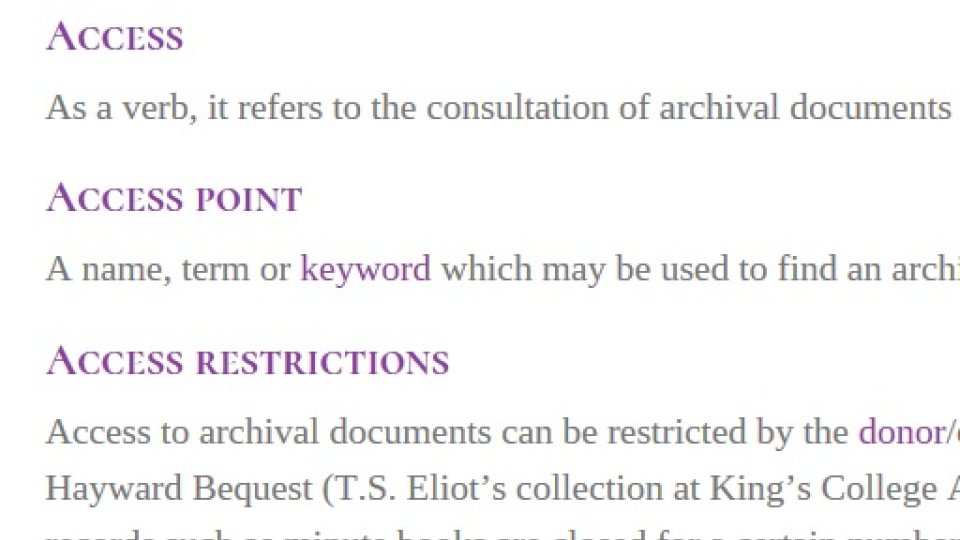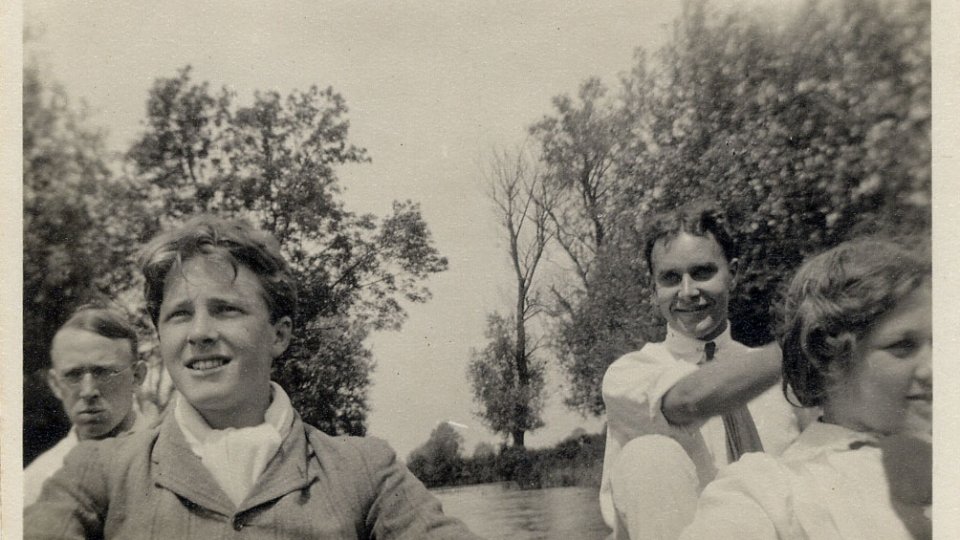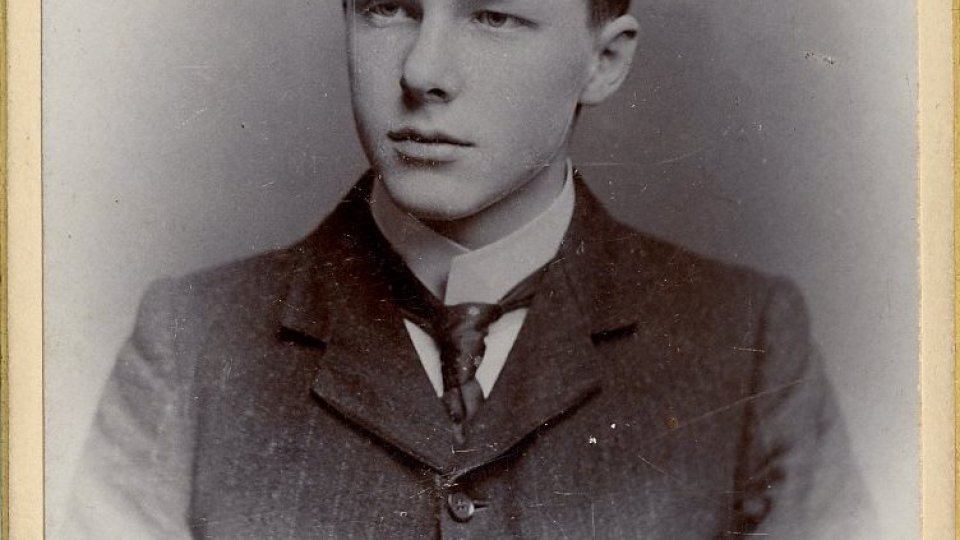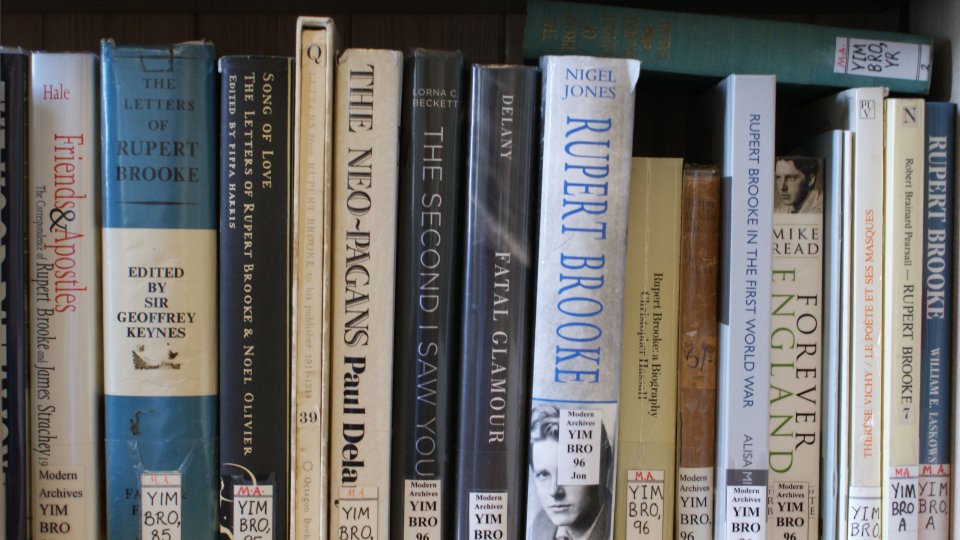Aims of this Resource
This resource teaches students the value of using primary sources, the importance of context and how documents can be interpreted in different ways. It also demonstrates that archives are not just dusty old documents used by elderly historians – they can be modern, accessible and of great relevance to students of various subjects, not least English and History.
Students who complete all of the sections of this resource will gain the necessary skills to visit a reading room independently and carry out their own research using archives. A more selective approach may appeal to many users though. Indexes and a sidebar enable users to navigate the site and easily identify key pages.
The resource is designed to encourage thought and discussion. Throughout the website, there will be topics which may allow for more than one perspective, encouraging debate or contemplation.
Key Stage 5
English Literature
First World War poetry; reading as an active process; reading as something which is never ‘innocent’ and is historically, socially and individually specific; interpretation as something which depends on the individual reader’s existing knowledge; critical and informed response to texts in a range of forms, styles and contexts; the interdependent skills of reading, analysis and research; evaluation of a writer’s choice of vocabulary, grammatical and structural features, through the comparison of drafts of poems
History
First World War; social and cultural impact of war; issues of patriotism; the war poets; the links between perspectives; the role played by individuals, groups, ideas or ideology
Key Stage 4
English Literature
First World War poetry; literal and inferential comprehension; critical reading; comparing texts
History
First World War; engage in historical enquiry to develop as independent learners and as critical and reflective thinkers; develop the ability to ask relevant questions about the past, to investigate issues critically and to make valid historical claims by using a range of sources in their historical context; develop an awareness of how and why different interpretations have been constructed about people, events and developments from the past and why they may have been accorded significance; organise and communicate their historical knowledge and understanding in different ways and reach substantiated conclusions.
Knowledge of what archives are and how to use them, as well as how to interpret documents relating to local history (Grantchester), military history (The Soldier) and biography (The Myth).
Understanding of the importance of primary sources and the relationship between text and context.
Skills to find and use primary sources, as well as how to form conclusions based on them and debate about the ways in which documents can be interpreted.
This resource is intended primarily for A-level students but will also be of interest to bright and motivated GCSE students. It can be used in class or students may use it individually at home, although those who use it in groups will benefit from the opportunity to discuss their thoughts, especially when interpreting documents.
The website is designed as a series of sections, in three parts:
-
‘Introduction to Archives’: What archives are, the key principles of archival research and how to access primary sources (sections 1-6).
-
‘Rupert Brooke Case Study’: How these ideas apply to the papers of Rupert Brooke, through interpretation activities focussing on different aspects of his life and a few of his most famous poems (sections 7-10).
-
'Critical Thinking': This section consolidates what the students have learned in the previous sections and encourages them to think about subjectivity/objectivity and how to plan research projects.
The website is flexible enough to allow users to skip to the most relevant sections using the main menu. However, those who progress through all of the lessons in turn will be rewarded during the interpretation activities in the Rupert Brooke Case Study, as they will have a greater understanding of the importance of context.
Unfamiliar terms are explained in the Glossary.
The Biographies section will help students during the Rupert Brooke Case Study, as it explains who the key people were in the interpretation activities.
Throughout the site, there are activities and discussion points. The discussion points could be used as topics for group discussions or even given as essays.
I asked Daisy Ashton, a 16 year old who had just started volunteering in the King’s College Archive Centre, to answer the questions in the Grantchester section in note form. She had limited time but the answers she gave showed an excellent understanding of the connection between the documents in that section and the context in which they were created (read her answers below). I am sure she could have written an essay and cited her sources had she been asked to.
During school visits and ‘residentials’, students were given activity packs based on the sections in the Rupert Brooke Case Study part of this website. These packs included background information and copies of archival documents. The attendees were split into groups and then there was a feedback session during which they could share their views and when their interpretations differed they could have mature debates. Notes taken by two groups during the ‘Grantchester’ activity can be seen using the links below.
You can also read one group’s notes on the activity based on the poem ‘The Soldier’. In these notes, the group drew comparisons between ‘The Soldier’ and ‘The Old Vicarage, Grantchester’, despite the fact these poems were in separate activities, suggesting that they knew the context in which these were written extended beyond the records they were given on any one subject.
All of these notes link the documents they were given to the context in which they were written. They also demonstrate an understanding of the subjectivity of research and the idea that reading is never ‘innocent’. In some cases, the students even linked the vocabulary and style of Rupert Brooke’s poems with the historical context in which they were written.
In order to ensure that this resource would be both challenging and stimulating for its users, while being within the capabilities of students, we sought advice and feedback throughout the development of the website. This included liaising with Rupert Brooke scholars, fellow archivists, teachers and most importantly students. We did this in the following ways
-
Asking volunteers, aged 16 and 18, to create transcriptions and try the interpretation activities. They also carried out their own research in order to select items for exhibitions in our reading room, which have since been added to this website.
-
Discussing the project with other archivists, including the Group for Literary Archives and Manuscripts (GLAM).
-
Creating a smaller educational resource with My Learning, entitled Two 1914-1918 War Poets (see link below), as part of their World War One Centenary.
-
Hosting a school visit for GCSE students from a local school. During this visit, we distilled the website into a day of talks, an archive exhibition and interpretation activities.
-
Running a series of ‘residentials’ for A-level students. These provided students from the College’s link schools throughout the country (nominated by their teachers) the opportunity to spend an evening in the College and experience Cambridge life. They were given a similar programme to the GCSE students who visited, however they were also given talks from experienced archive-users, more activities and greater opportunities for dialogue.
-
Hosting a pre-launch event which took place on the 10 April, using the programme for the residentials but also offering the opportunity to select and view records as a reader the following day.



